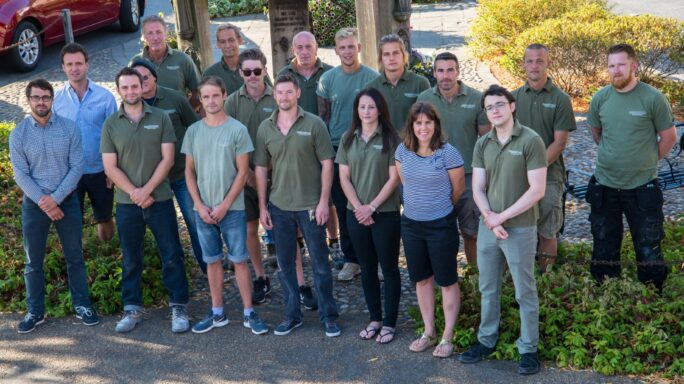Strategy, Legal & Operations
StreetInvest: Tips for charities on managing business admin

Dealing with business admin can be challenging for most companies. And charities are no exception.
Whether it’s staying on top of accounts, finding funding, or keeping on top of business processes and systems, it is important to manage business admin in the right way to keep the company moving so it can fulfil its goals.
In this article, StreetInvest co-founder Duncan Ross talks about how his charity is working to make a difference, where fundraising plays a role and what charities can do to manage their business admin.
What is StreetInvest?
StreetInvest is a small charity operating from the basement of a community centre near Richmond, in Greater London. We have a network of local partner organisations, which are currently active in eight countries across West and East Africa, Asia, Europe and Central America.
This model allows us to impact the lives of more than 20,000 street-connected young people around the world each year.
StreetInvest was set up almost exactly 10 years ago by a lawyer, a banker (myself) and a priest. The priest had more than 20 years of working with these young people, the banker had three decades of international finance and business development experience, and the lawyer knew how to get things done.
We started StreetInvest in response to the needs of the tens of millions of children around the world who are connected to the streets in some way.
While each child’s story is unique, many experience sexual and physical abuse, social exclusion and are denied their rights to education, basic health-care and a voice.
At the heart of our approach is the simple concept that street-connected children and young people have the strength to make positive changes in their lives, but that they cannot do this on their own.
Everything we do either promotes or supports a specific form of youth work called street work. We do this through a combination of research and data collection; advocacy on national and international levels; training and mentoring; and organisational development.
Street work takes place where the young person is – on the street. It also begins from where young people are in terms of their experiences, issues and goals.
Trained adult street workers develop trusting and empowering relationships with these young people. They can help children access food, shelter, medical care and even an education. But most importantly, they can simply be there, guiding the young person for as long as they need.
The relationship a child forges with their street worker can be the first step to positive change in their young life.
What’s the greatest challenge your business has faced and what did you learn?
In bringing positive change to the young people we support, the biggest challenge is simply the attitudes of those around them: the adults in their local communities all the way up to those in position of national power.
Despite their fantastic personal attributes, street-connected children are typically seen as either victims or criminals. It is incredibly difficult to persuade those in positions of influence to move away from this overly simplistic viewpoint and to see them positively.
We challenge people to trust in street-connected young people to be experts in their own lives – much in the same way as we would trust, listen to and be directed by our own children.
This challenge also plays out when it comes to fundraising. The natural starting point for many people is to want to “rescue” these young people and take them off the streets at any costs.
The fact is there is not always somewhere safe for these young people to go and they need support while they are on the street. Communicating this in our fundraising messages is a challenge as it can feel counterintuitive to prospective donors.
How do you manage your business records and admin?
As a charity, StreetInvest’s operational needs may differ from private sector businesses. We do not pay taxes apart from those related to our employees and we are not VAT registered.
Interestingly, however, all charities can benefit from Gift Aid, which is the scheme for charities to claim a donor’s tax relief at a fixed 25% (if they are eligible and if they approve us so to do – they may claim higher rate relief themselves).
We don’t sell anything but there are many similarities, such as payroll management and supplier payments.
There is another big difference too. The largest part of our income comes from institutional donations that are granted for specific activities. Typically, this may restrict the activity to a specific country or project.
In some cases, there are multiple donors for the same project or a single donor for multiple projects.
In all cases, these have to be managed so the right funds go to the right place, there is no overspend and we report back on the impact that the grants have had.
This in itself can be a complex task, as the reports often take different formats, using different metrics, across different time periods for the different donors.
What challenges have you faced when dealing with business admin?
While everyone agrees that business (especially financial) management is important, donors generally do not like to give charities money for “overheads”, which means securing adequate resources for making sure these operations are properly handled is challenging.
That is why most small charities, including us, rely very heavily on volunteers to run what some may say are critical core systems and processes. We need to be efficient and robust, just like a business. Getting people to recognise that this takes investment is one of our biggest challenges.
What lessons have you learned when managing your business admin?
Lesson one is to take the time to get the right processes and find the money to get the right systems.
Lesson minus two is to put processes and systems that can handle scale in place before you get to that scale.
It is very hard to decide to spend money on an accountant or a CRM system when your charity partners do not have enough money to feed more children or send them to school or pay the salaries of their staff.
For us, thinking in terms of investment returns from business efficiency in the long run makes those decisions a bit easier.
What support have you used to deal with your business admin?
We have tried pretty much every way to cost-effectively put in place business systems and processes. A large part of this is relying on regular volunteers who have specific areas of expertise, such as bookkeeping or accounting.
We also on occasion get shorter-term project volunteers from businesses in the relevant sectors. Then we take advantage of corporate CSR programmes that give us access to systems at reduced costs.
For example, Microsoft software, which is offered at a discount, or Salesforce CRM and Sage financial products, which offer free licences. As last resort, we pay for it.
What advice would you give to charities that are struggling with business admin?
Firstly, find the time to understand and implement systems and processes that will allow your charity to run efficiently.
Next, take time to check out what systems are available to charities for free or at a discount.
And finally, recognise that some discounted products are not designed for not-for-profits and so you will need external expertise to make them work. This can take more time and potentially more money. Be ready.
Running a non-profit organisation as a business
Our free whitepaper discusses the challenges of running a successful NPO. Discover the best solutions to complications in resources, compliance, reporting, and much more.






Ask the author a question or share your advice